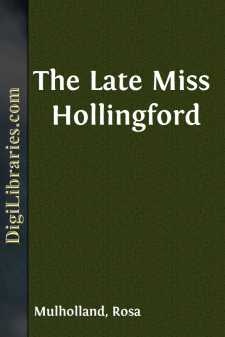Categories
- Antiques & Collectibles 13
- Architecture 36
- Art 48
- Bibles 22
- Biography & Autobiography 816
- Body, Mind & Spirit 145
- Business & Economics 28
- Children's Books 18
- Children's Fiction 14
- Computers 4
- Cooking 94
- Crafts & Hobbies 4
- Drama 346
- Education 58
- Family & Relationships 59
- Fiction 11831
- Foreign Language Study 3
- Games 19
- Gardening 17
- Health & Fitness 34
- History 1378
- House & Home 1
- Humor 147
- Juvenile Fiction 1873
- Juvenile Nonfiction 202
- Language Arts & Disciplines 89
- Law 16
- Literary Collections 686
- Literary Criticism 179
- Mathematics 13
- Medical 41
- Music 40
- Nature 179
- Non-Classifiable 1768
- Performing Arts 7
- Periodicals 1453
- Philosophy 66
- Photography 2
- Poetry 897
- Political Science 203
- Psychology 45
- Reference 154
- Religion 516
- Science 126
- Self-Help 86
- Social Science 82
- Sports & Recreation 34
- Study Aids 3
- Technology & Engineering 59
- Transportation 23
- Travel 463
- True Crime 29
Our website is made possible by displaying online advertisements to our visitors.
Please consider supporting us by disabling your ad blocker.
The Late Miss Hollingford
by: Rosa Mulholland
Description:
Excerpt
PREFACE.
"The Late Miss Hollingford" was published a good many years ago in the pages of All the Year Round.
It has never till now been re-published in England, though it has been translated into French under the title of Une Idée Fantasque, and issued by the Bleriot Library, with a preface by M. Gounod. It has also appeared in Italian. In the Tauchnitz Collection it is bound in with No Thoroughfare, having been chosen by the late Charles Dickens as a pendant for his own story in a volume of that series.
Mr. Dickens was so pleased with this tale, and some others by the same author, then a very young beginner, that he wrote asking her to contribute a serial story of considerable length to his journal.
"The Late Miss Hollingford" (the title of which was chosen by Mr. Dickens himself) comes now asking for a favourable reception from the public, in the name of the great master of English fiction—long passed away from among us.
A dear old lady tells us this story in the late autumn evenings. Now the harvest is in, huge haycocks shelter the gable, the honey is strained and put by in jars, the apples are ripened and stored; the logs begin to sputter and sing in the big parlour at evening, hot cakes to steam on the tea-table, and the pleasant lamp-lit hours to spread themselves. Indoor things begin to have meaning looks of their own, our limbs grow quiet, and our brains begin to work. The moors beyond the window take strange expressions in the twilight, and fold mysteries into their hollows with the shadows of the night. The maids in the kitchen sing wild ballads to one another round the ingle; and when one of us young folks threads the rambling passages above to fetch a stray thimble from one of the lavender-scented bed-rooms, she comes back flying down the great hollow staircase as if a troop of ghosts were at her heels. It is the time to enjoy a story, a true story, the story of a real life; and here it is, as our dear old lady is telling it to us.
When I first learned, my children, that I was the ward of my mother's early friend, Mrs. Hollingford, and was to live under her roof after my departure from school, I little thought that a place like Hillsbro' Farm was ever likely to be my home. I was a conceited young person, and fond of giving myself airs. My father was colonel of his regiment, and I thought I had a right to look down on Lydia Brown, whose father was in business, though she wore velvet three inches deep upon her frocks, while mine had no better trimming than worsted braid. I had spent all my life at school, from the day when my father and mother kissed me for the last time in Miss Sweetman's parlour. I remember yet my pretty mother's pale tearful face as she looked back at me through the carriage window, and my own paroxysm of despairing tears on the mat when the door was shut. After that I had a pleasant enough life of it. I was a favourite at school, having a disposition to make myself and others as happy as I could. I required a good deal of snubbing, but when properly kept down I believe I was not a disagreeable girl.
My Indian letters generally contained some bit of news to amuse or interest my companions, and now and again captain, or ensign somebody, home upon sick leave, called and presented himself in Miss Sweetman's parlour, with curious presents for me, my mistresses, or favourite companions. I remember well the day when Major Guthrie arrived with the box of stuffed birds. Miss Kitty Sweetman, our youngest and best-loved mistress, was sent on before me to speak civilly to the gentleman in the parlour, and announce my coming. Miss Kitty was the drudge of the school, the sweetest-tempered drudge in the world. She was not so well informed as her elder sisters, and had to make up in the quantity of her teaching what it lacked in the quality. She was fagged, and hunted, and worried from morning till night by all the small girls in the school....



